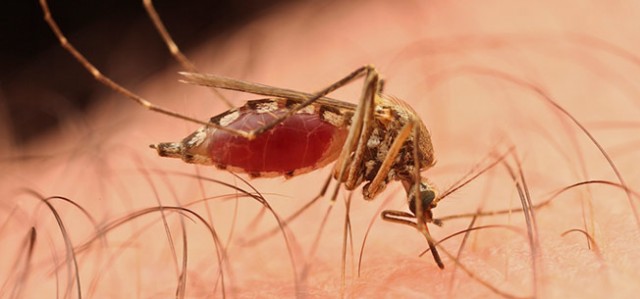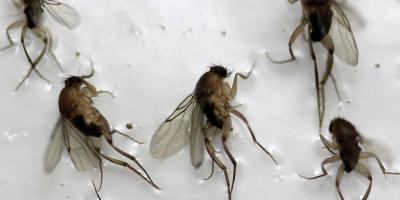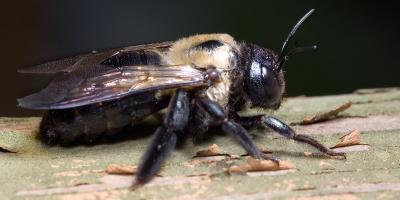From DDT to DEET: Can We Just Eliminate Mosquitos For Good?

With the diseases like Zika having previously spread so quickly in the Southern Hemisphere and Florida, the deadliest animals in the world just keep on adding to their destructive repertoire. Mosquitoes have a long history of being public enemy number one, yet we still have to cope with them buzzing around and leaving potentially deadly red bumps on our skin. So why don’t we just get rid of mosquitoes altogether?
The short answer here is, well, we can’t. Extinction is a rightfully stigmatized subject. The ecological impact of eradicating an entire species is often more environmentally detrimental than it is beneficial. Unfortunately, despite the fact that some species seem to have a vendetta against the human race, this goes for mosquitoes as well. The total extinction of all mosquito species, around 3,500 globally, would be as senseless as it would be impossible.
Learning The Hard Way
That isn’t to say we haven’t tried. The pesticide DDT was once known as the most effective weapon for pest control in the world. (Anybody remember “DDT is good for me-e-e”?) So much so that over 1.3 million tons of the “miracle” pesticide were sprayed domestically alone. This was a time before the “Pesticide Application: Keep Off Lawn” signs warned people of the dangers of human contact with pesticides. What we learned from this widespread use of DDT was that, even at very low levels of exposure, the effects on human health were devastating. A pest-free home from the 1940s to 1970s came with unexpected side effects like breast and other cancers, male infertility, developmental delay, nervous system and liver damage. These are just a handful of effects on a list that continues to grow.
The most important takeaway from the use of DDT is that it simply didn’t work. The Pan American Health Organization undertook the most concerted eradication effort of mosquitoes in Latin America in the 1950s and 1960s. Though immediately successful, when efforts let up, the mosquitoes repopulated the areas and proved their resiliency. The pests that we despise have adapted over the years to man-made environments. According to Dr. Jo Lines, a reader of malaria control and vector (organisms that spread disease) biology, our continual urban sprawl simply gives mosquitoes more neighborhoods to make their own. He insists that “The other things we’ll build out. These things are like rats and pigeons. We give them their home and food.”
Welp, Is There Any Hope?
To answer this, it’s important to realize that not all mosquitoes are threats. Of the 3,500 varieties of mosquitoes on earth, only 200 bite humans. Breaking this down even further, only 30-40 species spread malaria and only the Aedes aegypti species is thought to spread Zika. Considering that it’s impossible to eradicate mosquitoes entirely, it may be more reasonable to focus on the bad guys. Here’s where things get even more tricky, as subjects like “editing nature” and “genetic modification” make people *insert terrified GIF here*.
These methods, however, are as fascinating as they are touchy subjects. The most promising means of eradication is a cutting-edge technology called gene drive. Gene drive is where scientists alter the genetic code of males so that they can only produce sterile offspring. When released into the wild, these males reproduce and leave the next generation infertile and barren. If they are unable to breed, the genetic modification is selected out. If they can, in theory, you have total extinction.
It works! Studies testing the effect of these releases in Brazil and the Cayman islands found 80% drops in Aedes aegypti levels. This was a small test, however, and as global mosquito populations are insurmountable, it would require so many of these releases on a yearly basis that the economy likely couldn’t support it.
Ideas like these are exciting, and very real, but only in a long-term sense. Not only are they somewhat far-off ideals, they pull funding from real “ground-zero” research that can make an immediate difference. Professor Steve Lindsay, a public-health entomologist, points out the flawed approach of big theory ideals: “This thing breeds in small containers: flowerpots, gutters, tyres, water bottles. It’s about screening buildings, putting up nets, spraying insecticide in laundry areas. That’s not something for health professionals: that’s about educating and empowering communities so that they can reduce the risk themselves.”
The Only Real Solution Is To Control Mosquitoes Locally
Even the scientists don’t care for mosquitoes, but we’re still not on the brink of total extinction. Though as a global nuisance we think it’s safe to say that they’re not going anywhere, you can take measures to protect your home and the area around it.
We can help you take back your yard and safeguard you from mosquitoes. Our natural blend of botanical oils and synthesized derivatives are as safe for you as they are dangerous for the world’s most dangerous animal. When used together, these products deliver a fast knockdown plus long-lasting residual control, which is exactly what biting pest problems require for effective results.
You can rely on JP Pest Services to assess your current mosquito issues and develop a solution right for you. With decades of experience dealing with mosquitoes and other pests, you won’t find a better partner to work with. Contact our Professionals today and find out how we can help prevent mosquitoes from invading your space.



